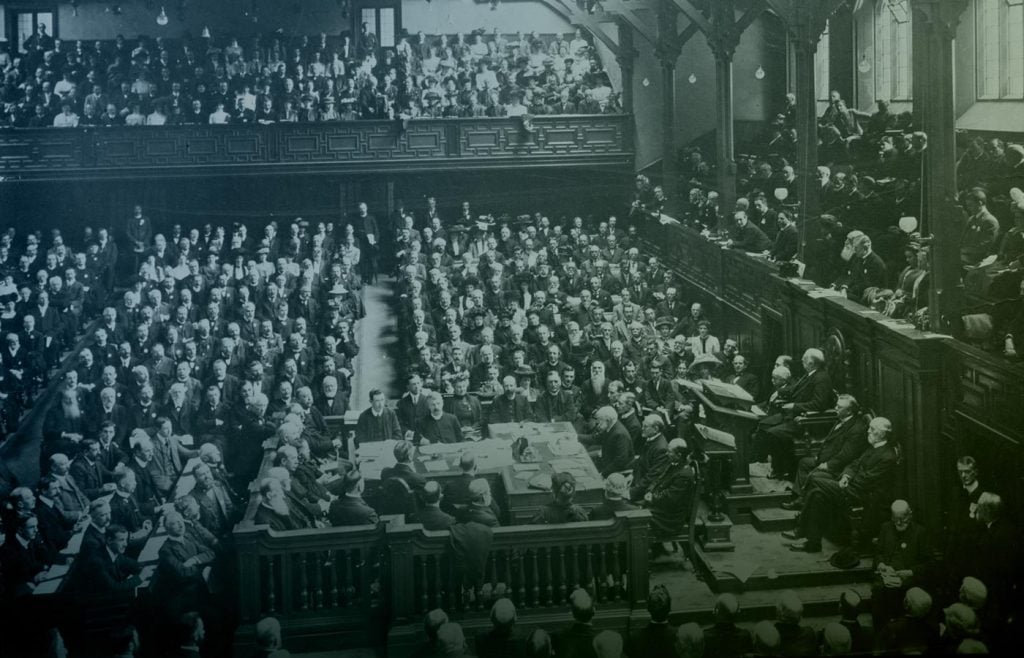There was a time when Protestant missionary work was a dominant topic in American culture. The largest missionary conference ever held, the Ecumenical Conference on Foreign Missions, happened in 1900. About 180,000 to 200,000 people traveled to New York City to take part. Churches across the city hosted concurrent sessions and the plenaries were held in Carnegie Hall. Almost all newspapers across the country, in large cities and small towns alike, carried daily updates from the conference. The conference was headlined by a former president, Benjamin Harrison, as well as the sitting president, William McKinley, and a future president, Theodore Roosevelt. The conference covered a wide range of topics: women in missionary work, the use of business to advance missions, and reports from across the world. The latter mostly came from white evangelicals because, in fact, most missionaries of the day were white evangelicals. The conference reflected broader themes in American evangelicalism, including pragmatism, an entrepreneurial spirit, a commitment to serving others, and activism on a global scale.
Login to read more
Sign in or create a free account to access Subscriber-only content.
